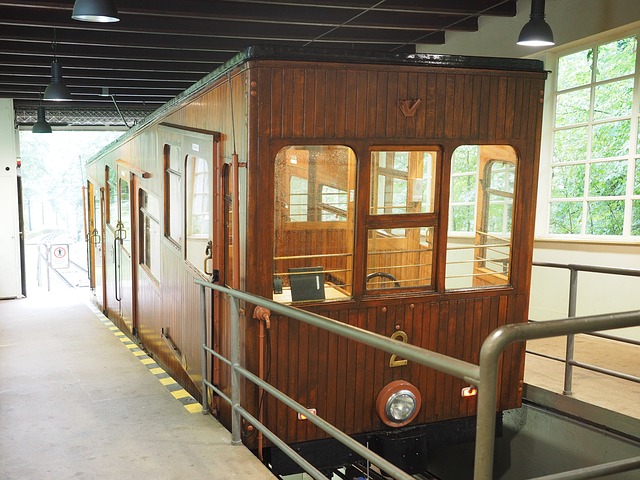Funiculi, Funicula
- 1.Accompaniment (127bpm)0:35
- 2.Accompaniment + Melody (117bpm)0:38
“Funiculi, Funicula” is a Neapolitan song composed in 1880 by Luigi Denza to lyrics by Peppino Turco.
‘Funiculi, Funicula’ was written to commemorate the opening of the first funicular cable car on Mount Vesuvius. It was presented by Turco and Denza at the Piedigrotta festival the same year. The sheet music was published by Ricordi and sold over a million copies within a year. Since its publication, it has been widely adapted and recorded.
In Turco’s original lyrics, a young man compares his sweetheart to a volcano, and invites her to join him in a romantic trip to the summit.
English translation
I climbed up high this evening, oh, Nanetta,
Do you know where? Do you know where?
Where this ungrateful heart
No longer pains me! No longer pains me!
Where fire burns, but if you run away,
It lets you be, it lets you be!
It doesn’t follow after or torment you
Just with a look, just with a look.
(Chorus)
Let’s go, let’s go! To the top we’ll go!
Let’s go, let’s go! To the top we’ll go!
Funiculi, funicula, funiculi, funicula!
To the top we’ll go, funiculi, funicula!
The car has climbed up high, see, climbed up high now,
Right to the top! Right to the top!
It went, and turned around, and came back down,
And now it’s stopped! And now it’s stopped!
The top is turning round, and round, and round,
Around yourself! Around yourself!
My heart is singing the same refrain:
We should be wed! We should be wed!
(Chorus)
Let’s go, let’s go! To the top we’ll go!
Let’s go, let’s go! To the top we’ll go!
Funiculi, funicula, funiculi, funicula!
To the top we’ll go, funiculi, funicula!
Traditional English lyrics
Edward Oxenford, a lyricist and translator of librettos, wrote lyrics, with scant relationship to those of the original version, that became traditional in English-speaking countries. His version of ‘Funiculi, Funicula’ often appears with the title “A Merry Life”.
Some think the world is made for fun and frolic,
And so do I! And so do I!
Some think it well to be all melancholic,
To pine and sigh; to pine and sigh;
But I, I love to spend my time in singing,
Some joyous song, some joyous song,
To set the air with music bravely ringing
Is far from wrong! Is far from wrong!
Harken, harken, music sounds a-far!
Harken, harken, with a happy heart!
Funiculì, funiculà, funiculì, funiculà!
Joy is everywhere, funiculì, funiculà!
Ah me! ’tis strange that some should take to sighing,
And like it well! And like it well!
For me, I have not thought it worth the trying,
So cannot tell! So cannot tell!
With laugh, with dance and song the day soon passes
Full soon is gone, full soon is gone,
For mirth was made for joyous lads and lasses
To call their own! To call their own!
Harken, harken, hark the soft guitar!
Harken, harken, hark the soft guitar!
Funiculì, funiculà, funiculì, funiculà!
Hark the soft guitar, funiculì, funiculà!
Purchase includes:
- Accompaniment
- Accompaniment without repeat (often used in exams)
- Accompaniment + Melody
- Accompaniment + Melody without repeat (often used in exams)
There is a 19 bar introduction.
€3,50
Product Description
“Funiculi, Funicula” is a Neapolitan song composed in 1880 by Luigi Denza to lyrics by Peppino Turco.
‘Funiculi, Funicula’ was written to commemorate the opening of the first funicular cable car on Mount Vesuvius. It was presented by Turco and Denza at the Piedigrotta festival the same year. The sheet music was published by Ricordi and sold over a million copies within a year. Since its publication, it has been widely adapted and recorded.
In Turco’s original lyrics, a young man compares his sweetheart to a volcano, and invites her to join him in a romantic trip to the summit.
English translation
I climbed up high this evening, oh, Nanetta,
Do you know where? Do you know where?
Where this ungrateful heart
No longer pains me! No longer pains me!
Where fire burns, but if you run away,
It lets you be, it lets you be!
It doesn’t follow after or torment you
Just with a look, just with a look.
(Chorus)
Let’s go, let’s go! To the top we’ll go!
Let’s go, let’s go! To the top we’ll go!
Funiculi, funicula, funiculi, funicula!
To the top we’ll go, funiculi, funicula!
The car has climbed up high, see, climbed up high now,
Right to the top! Right to the top!
It went, and turned around, and came back down,
And now it’s stopped! And now it’s stopped!
The top is turning round, and round, and round,
Around yourself! Around yourself!
My heart is singing the same refrain:
We should be wed! We should be wed!
(Chorus)
Let’s go, let’s go! To the top we’ll go!
Let’s go, let’s go! To the top we’ll go!
Funiculi, funicula, funiculi, funicula!
To the top we’ll go, funiculi, funicula!
Traditional English lyrics
Edward Oxenford, a lyricist and translator of librettos, wrote lyrics, with scant relationship to those of the original version, that became traditional in English-speaking countries. His version of ‘Funiculi, Funicula’ often appears with the title “A Merry Life”.
Some think the world is made for fun and frolic,
And so do I! And so do I!
Some think it well to be all melancholic,
To pine and sigh; to pine and sigh;
But I, I love to spend my time in singing,
Some joyous song, some joyous song,
To set the air with music bravely ringing
Is far from wrong! Is far from wrong!
Harken, harken, music sounds a-far!
Harken, harken, with a happy heart!
Funiculì, funiculà, funiculì, funiculà!
Joy is everywhere, funiculì, funiculà!
Ah me! ’tis strange that some should take to sighing,
And like it well! And like it well!
For me, I have not thought it worth the trying,
So cannot tell! So cannot tell!
With laugh, with dance and song the day soon passes
Full soon is gone, full soon is gone,
For mirth was made for joyous lads and lasses
To call their own! To call their own!
Harken, harken, hark the soft guitar!
Harken, harken, hark the soft guitar!
Funiculì, funiculà, funiculì, funiculà!
Hark the soft guitar, funiculì, funiculà!
Purchase includes:
- Accompaniment
- Accompaniment without repeat (often used in exams)
- Accompaniment + Melody
- Accompaniment + Melody without repeat (often used in exams)
There is a 19 bar introduction.









